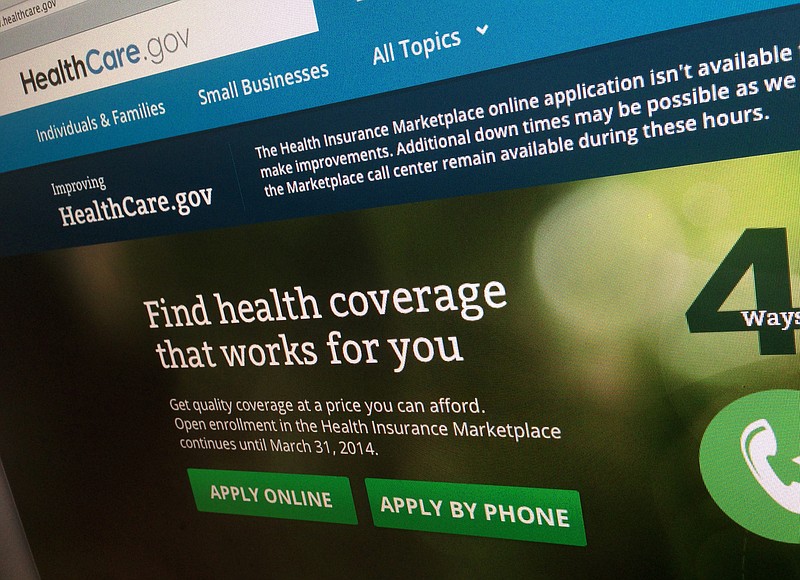The swearing in of our new president means many things to many people. However, one issue is common to all Americans: health care. Regardless of any changes President-elect Donald Trump and Congress may make, all of us must continue our consumer savviness to get the most benefit from the system. This week's column and next week's highlight steps we should take to better serve ourselves and our families, compliments of AARP research.
Let's begin with that first doctor visit. Under the current Affordable Care Act (Obamacare), annual physicals or preventative screenings are free. These screenings can identify potential health problems and give you time to get to know your physician. They also allow him or her to become more familiar with you.
* Be prepared. Write down questions for your doctor to answer and be prepared to describe any symptoms you may be experiencing. Question any tests or extra services he may push during the exam.
* Don't waste your time. If you arrive at 8 a.m. for an 8:30 appointment and are still waiting an hour later, do something about it. While wait time estimates normally run about an hour, that's 60 minutes you could be doing something else. Tell the front-desk employee you can only wait x-amount of time. Then, if the deadline arrives and you're still sitting, inform the receptionist your time is as valuable as your doctor's, and you're leaving. Tell her you intend to find another physician who treats patients with the respect they deserve. I did this several years ago. After waiting over an hour for my long-time doctor (and I was crazy about him) for the umpteenth time, I took out my business card, wrote my hourly fee on the back and handed it to the receptionist. I informed her I was leaving, and the doctor owed me $100. A couple of hours after my grand exit, the doctor called to apologize. While he didn't pay up, a large sign appeared above the reception desk: Please notify the receptionist if you have been waiting more than 20 minutes past your appointment time.
* Ask about a discount vs insurance. Higher deductibles and out-of-pocket maximums for 2017 mean less money in our pockets. Just because we're lucky enough to have insurance doesn't mean we must avail ourselves of the plan. Be upfront with your provider; tell her your financial situation isn't the best and you simply can't afford the new hikes. Some physicians have standing discount policies that cut their fees by as much as half. It never hurts to ask. The answer won't ever be worse than "No."
* Get the best specialist. Talk with your primary care doctor if the need arises for a specialist's opinion. (Ask your insurance company for its list of board-certified specialists, and never visit one who isn't board-certified.) Ask friends and colleagues for recommendations, and check credentials online at the American Board of Medical Specialties (certificationmatters.org).
Choosing the right pharmacy can make a financial difference in your favor. Medicare recipients know to use a preferred pharmacy to fill prescriptions, which can save up to 20 percent more than those in network. Check with your health plan for the preferred pharmacies closest to you. Employee insurance plans usually mandate their network pharmacies; otherwise, you'll lose a chuck of change. For those with a plan that allows choice, the following tips make a whole lot of sense:
* Check out big-box stores. Places like Costco, Sam's and supermarket pharmacies advertise deep-discount prices for popular generic drugs. The $4 ad doesn't cover everything, however, and if your doctor writes a prescription for something different, you may have to pay more. Even though I sometimes use the Food City pharmacy, which is Medicare-preferred, some of the same meds, such as Metformin for diabetes, cost money, yet if the script is filled by our mail-order druggist, the medication is free. Publix also offers this standard RX free. On the other hand, if the physician prescribes Metformin's extended-release sibling Fortamet, it will cost as much as $500! It pays to be observant and request copies of your chains' deep-discount lists of generics before your doctor writes a prescription. (A good site for comparisons is GoodRX.com.)
* Make friends with your pharmacist. He can help immensely in your search for savings and health information. Over the years, I've had more faith in pharmacists than in some of my physicians, at least drug-wise. Make an appointment with your pharmacist to discuss drugs you're taking and exact dosages. Whether giving coupons or suggesting generics or different dosages, your druggist is your first point of contact. Informed pharmacists also know about assistance programs and how to apply for them but also about programs in your immediate area and how to go to the front of the line.
* Find freebies. Publix's giveaways include a 90-day supply of the blood pressure med amlodipine and a two-week supply of popular antibiotics, such as amoxicillin and ampicillin and ciprofloxacin. Other grocery store chains have freebies as well.
* Contact the manufacturer. The drug manufacturer can be a godsend. More and more expensive specialty drugs arrive every day and, all too often, our insurance companies deny payment. Call the drug maker's customer-assistance team. Often they'll supply these expensive meds for families with incomes up to $100,000.
In next week's column, I'll talk about how to conserve funds for hospital stays and how to deal with insurance companies.
Contact Ellen Phillips at consumerwatch@timesfreepress.com.

